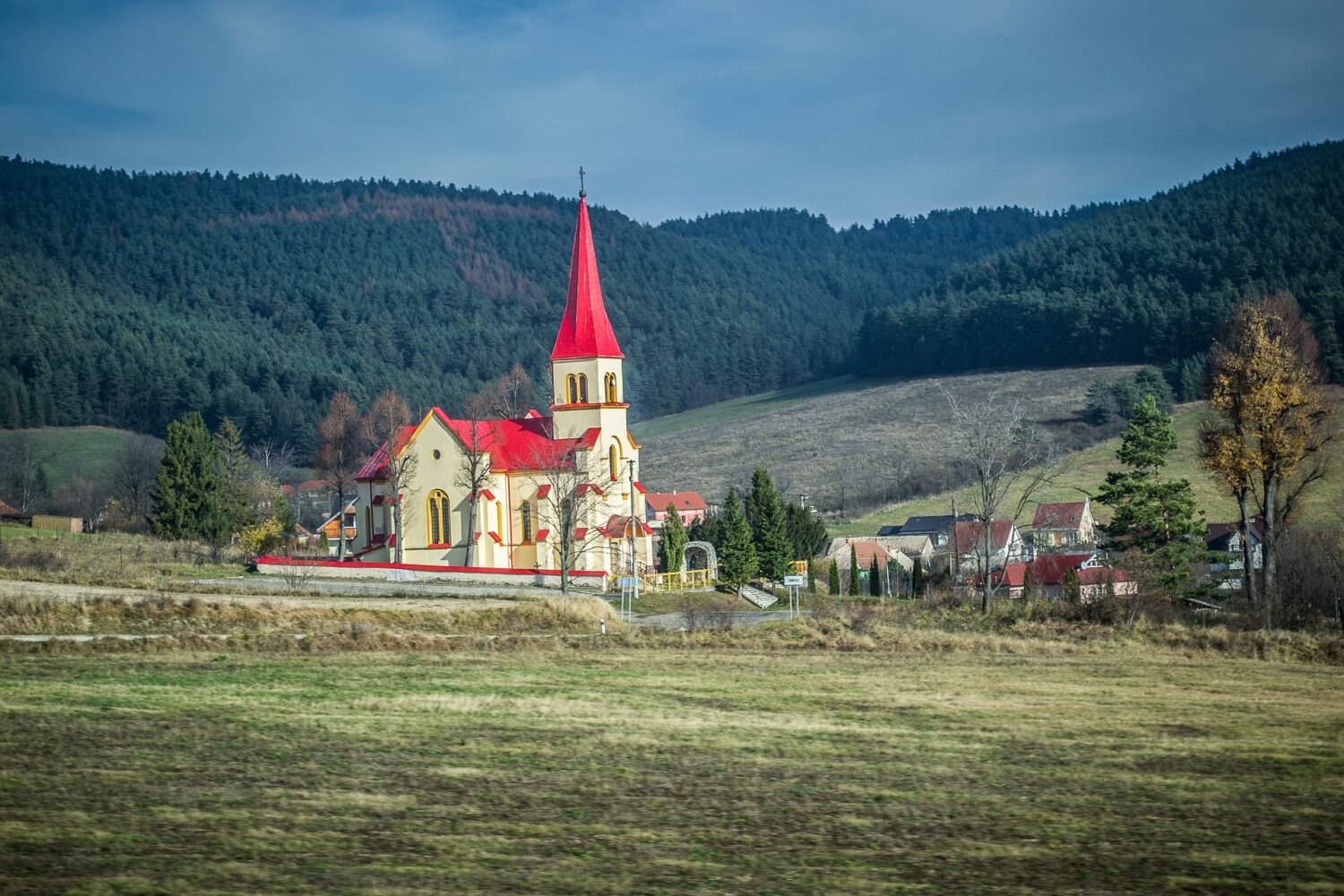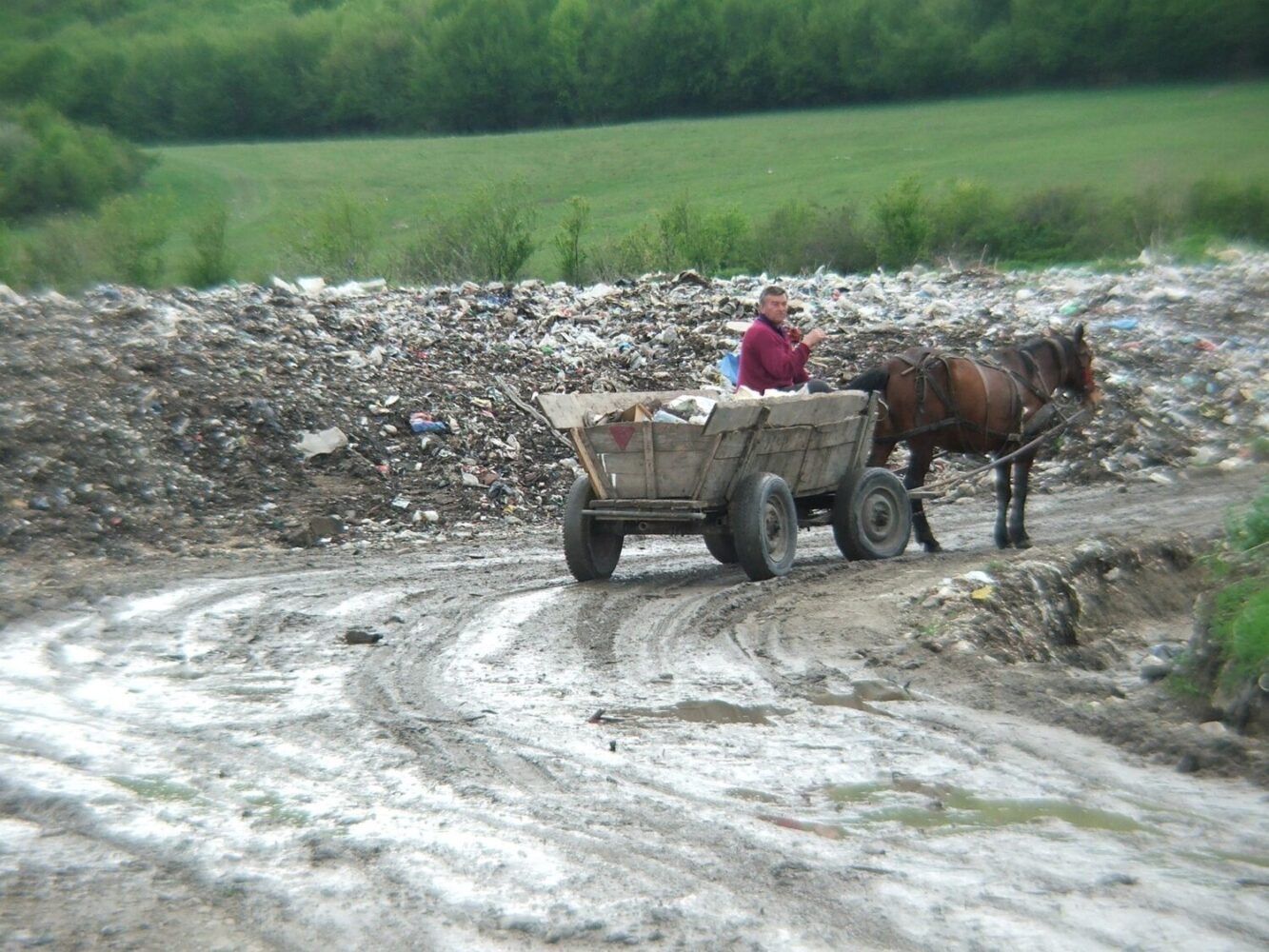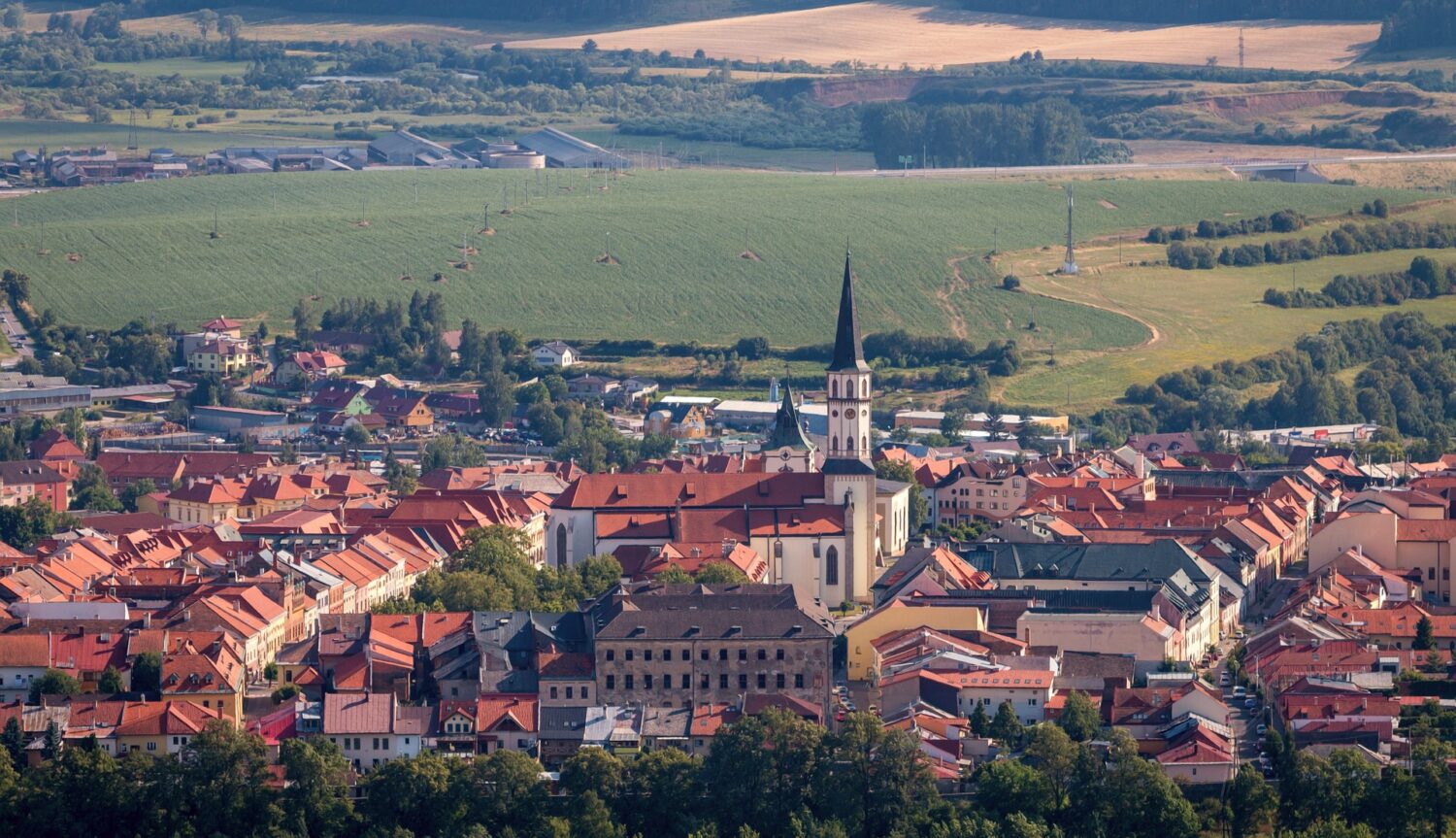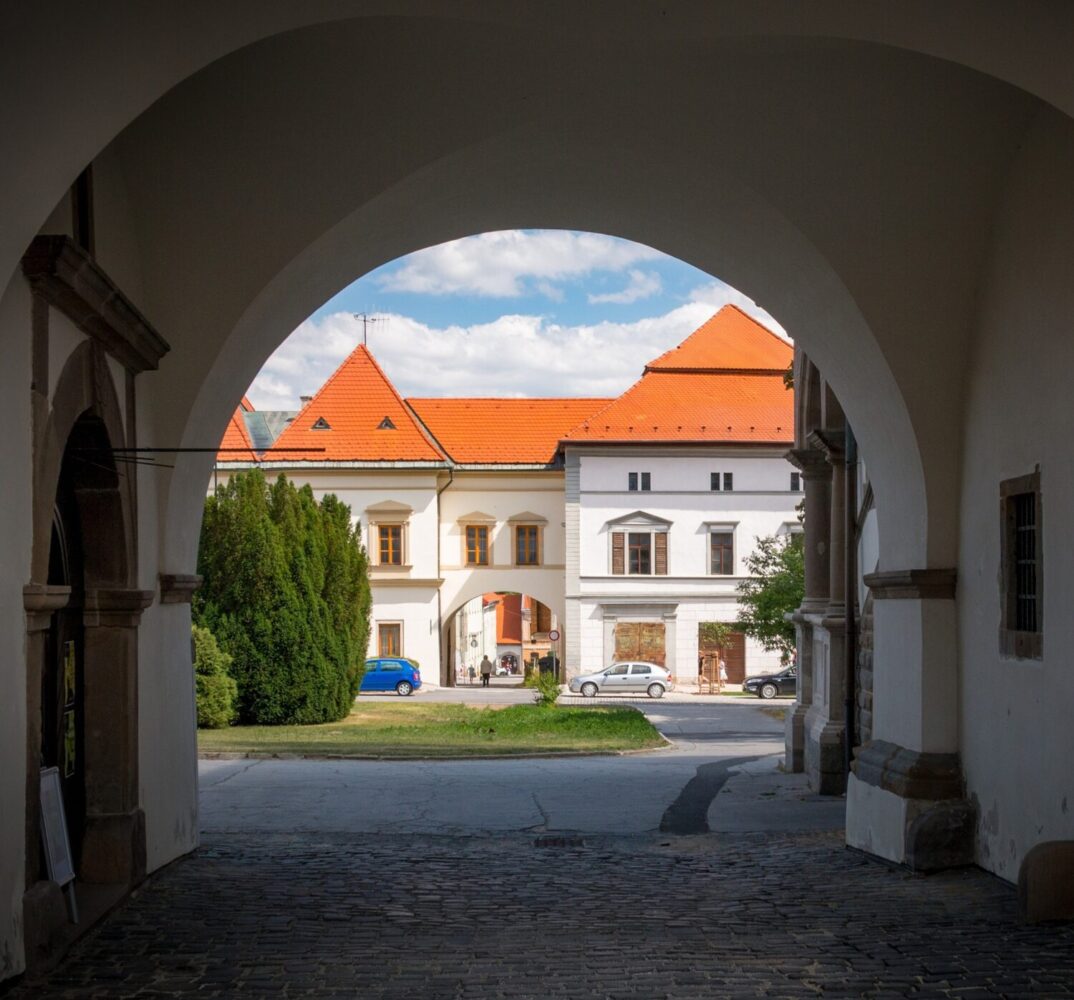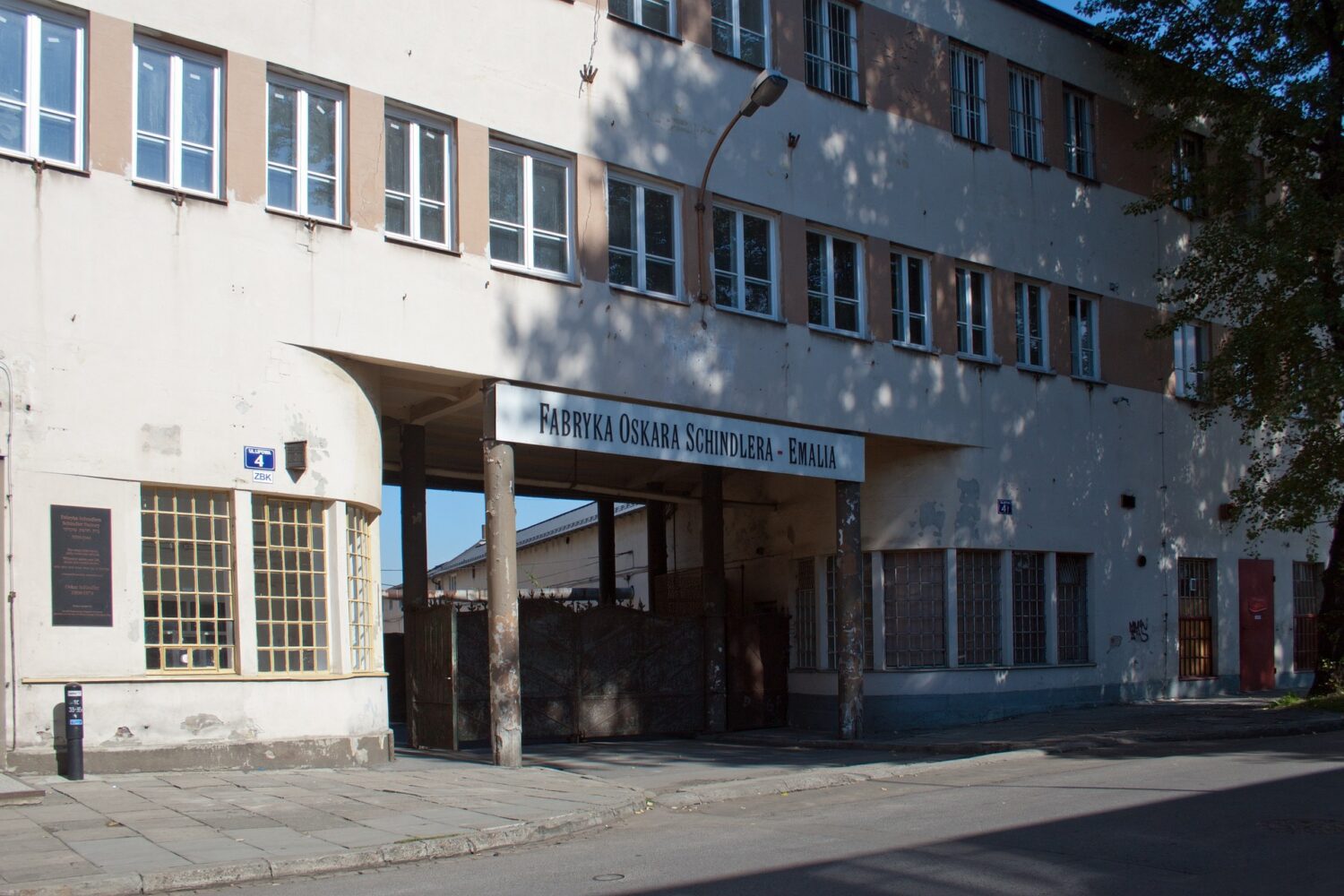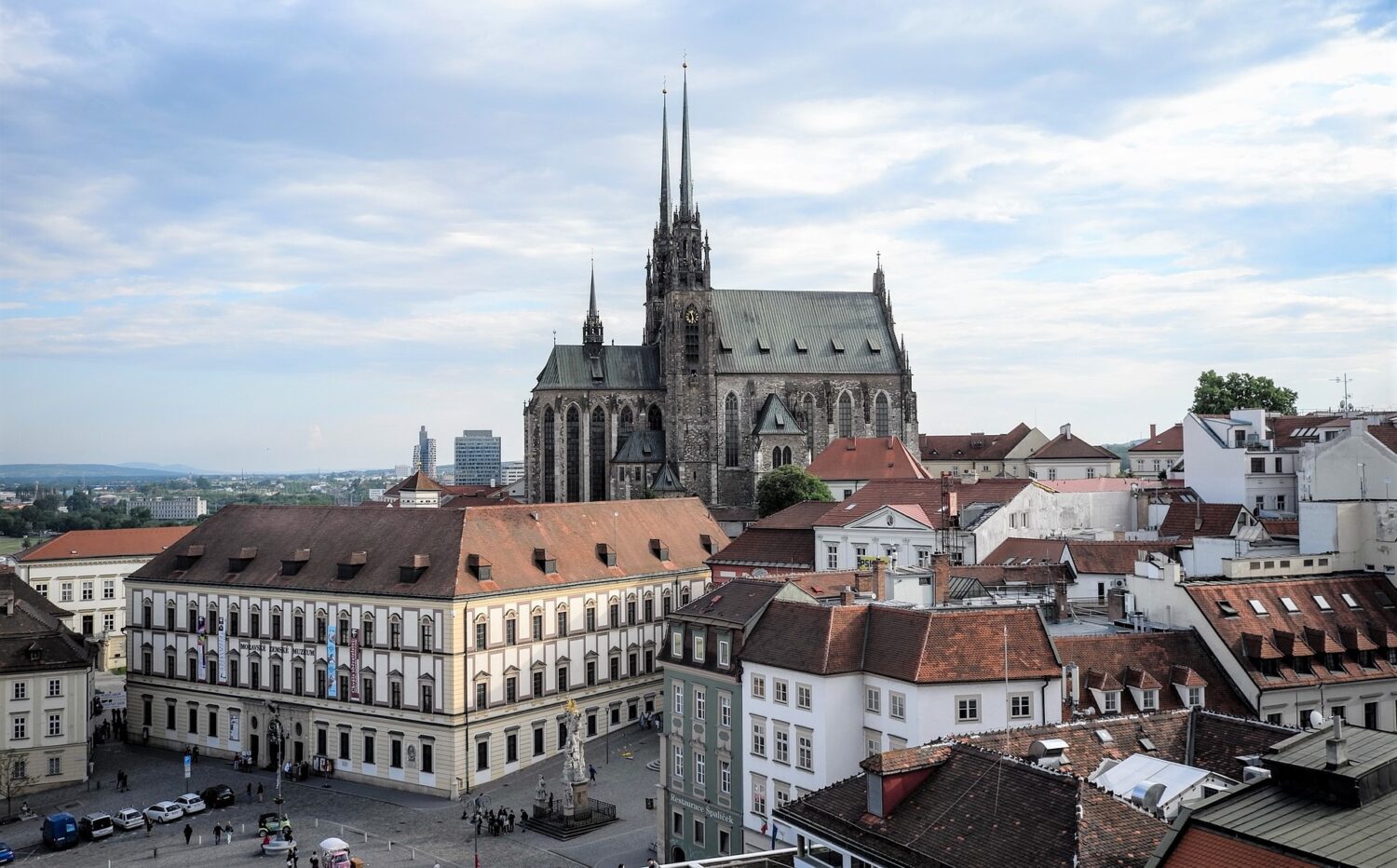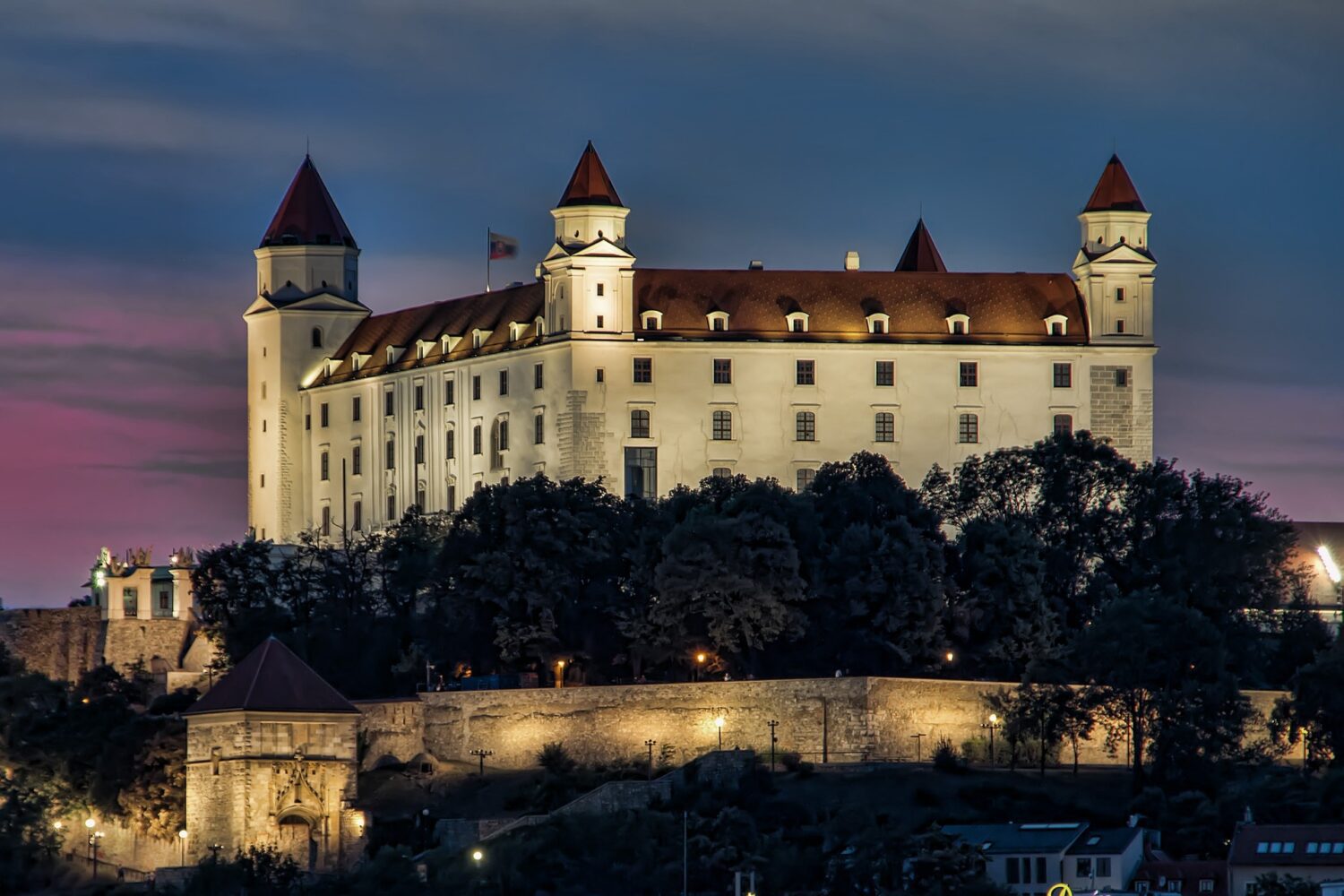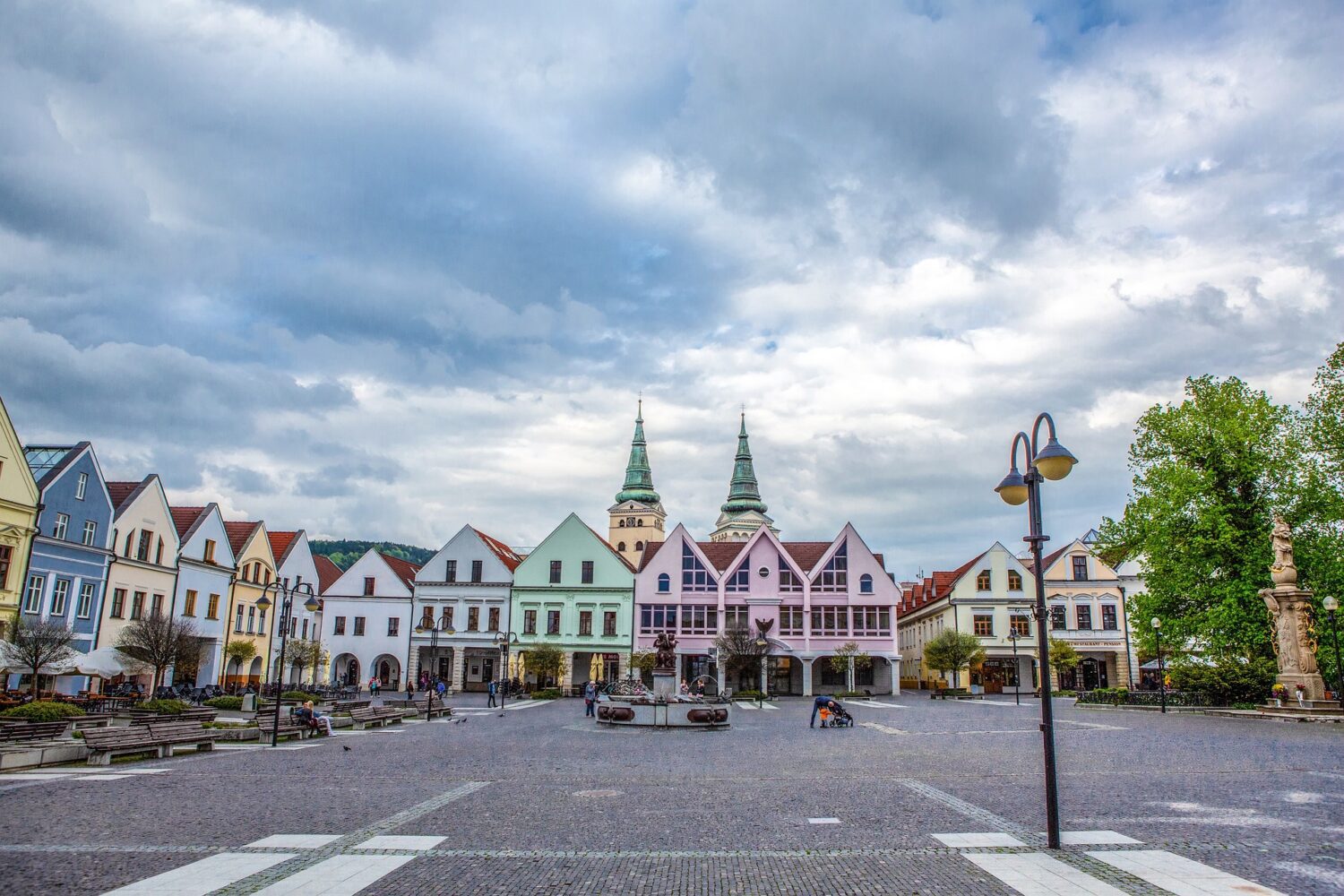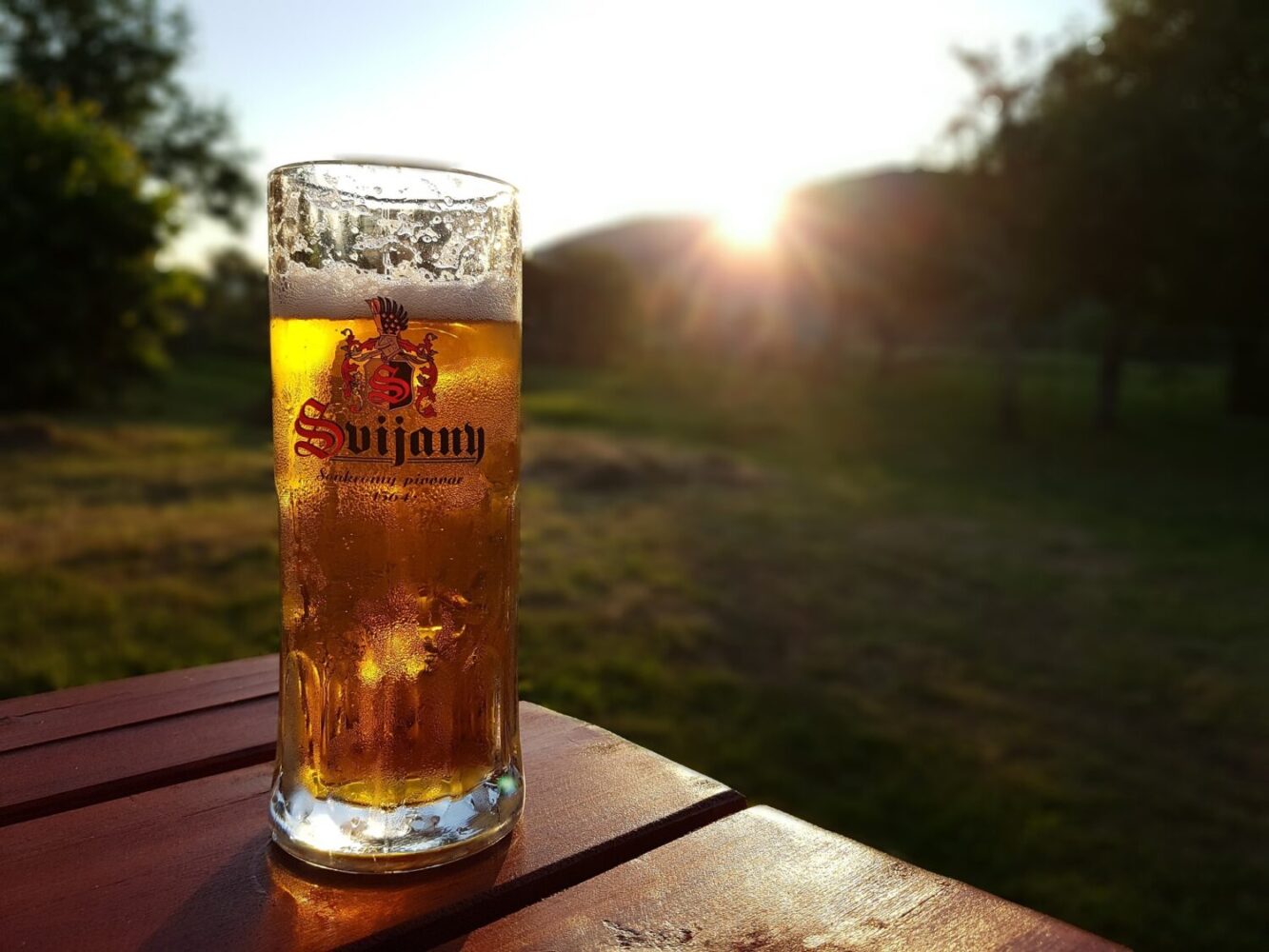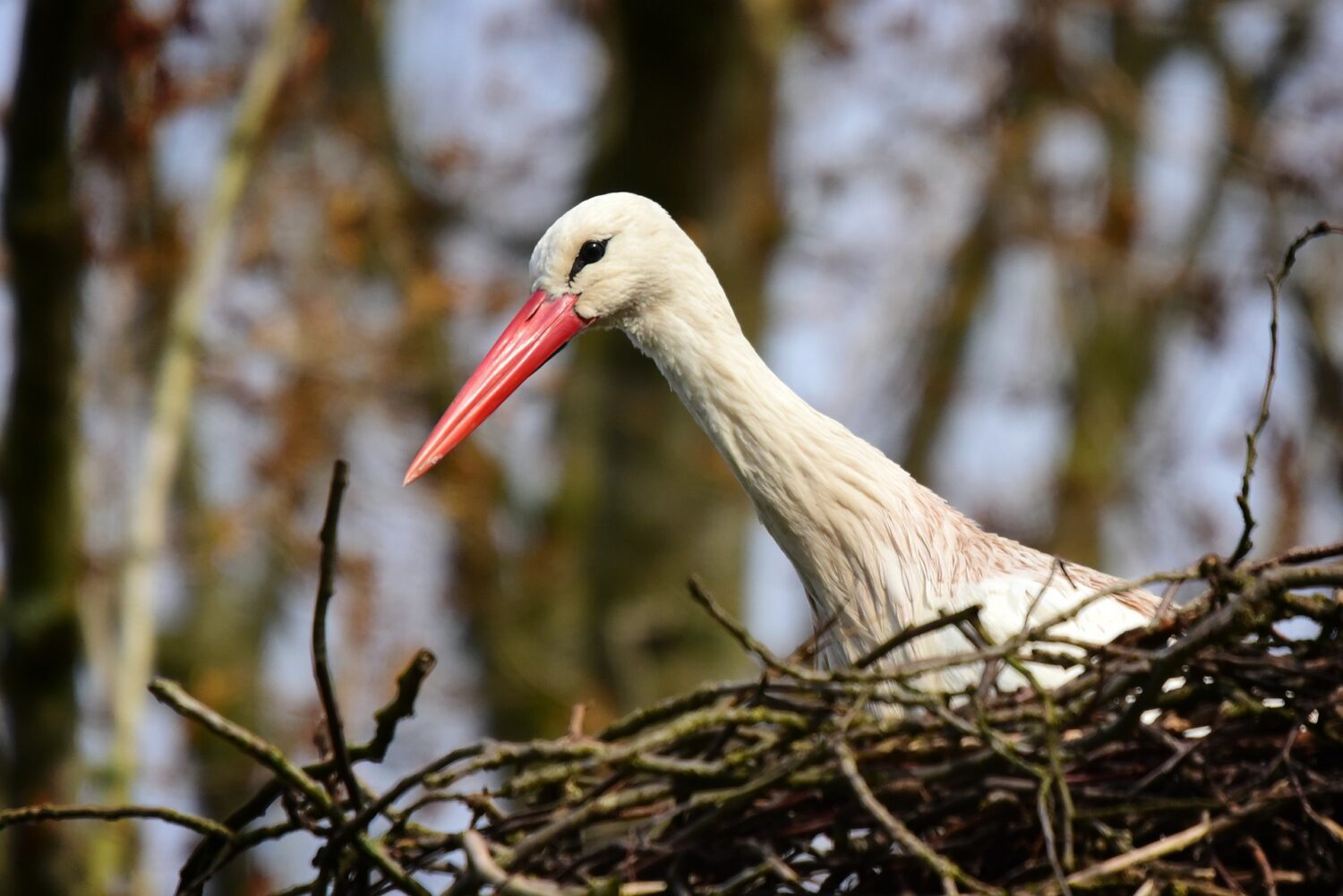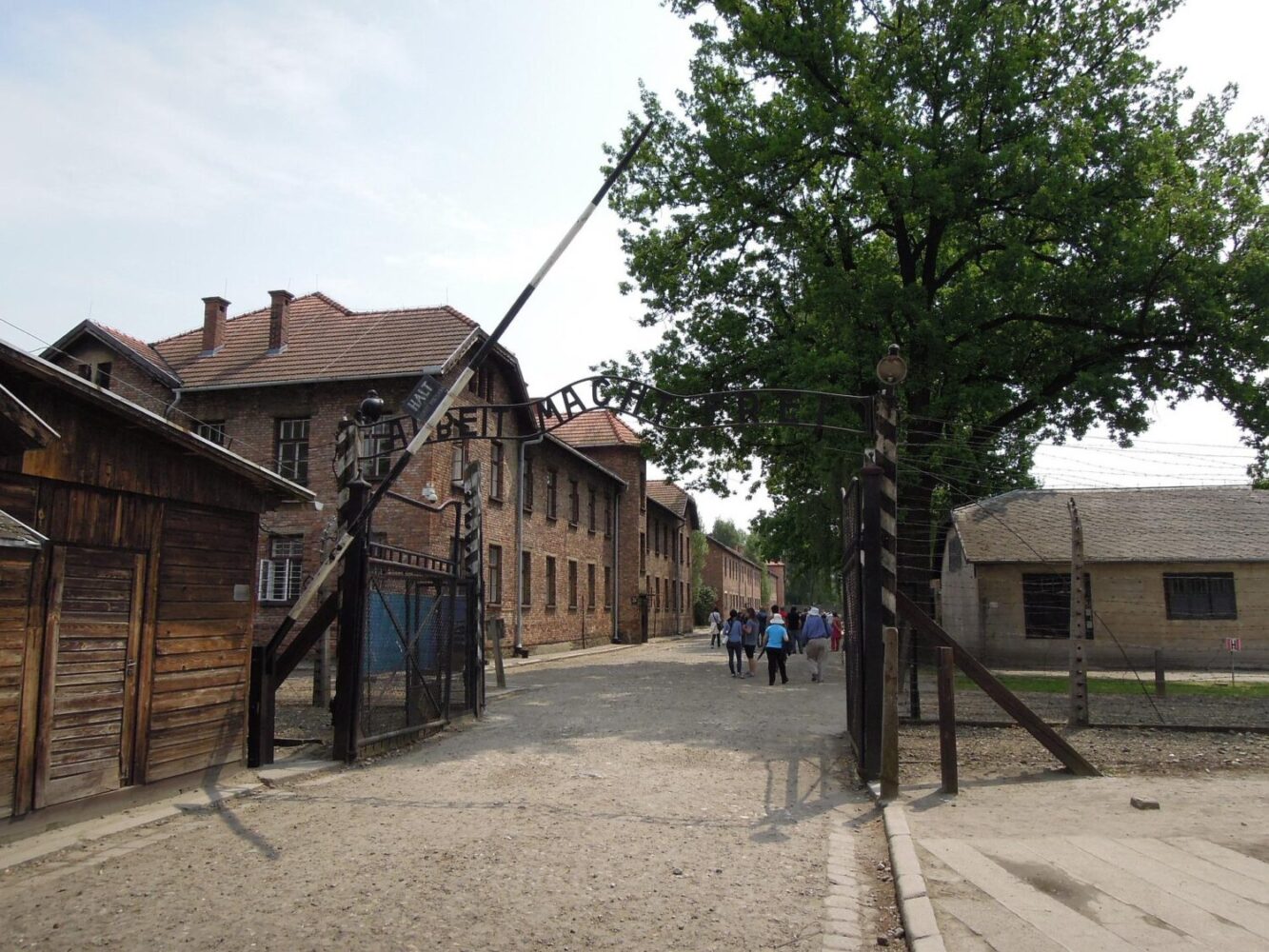Chapter 6 – Trencin, Black Knights & a castle
This post is part of a series of posts following the adventures of a man on a mission to explore 20 countries around Europe on a motorcycle – go to One for the road.
Chapter 6
Being British and therefore having grown up under the dense shadow of football, rugby, football, cricket, golf and football, I’ve never really noticed ice hockey before, and so am captivated now by the blinding speed and astonishing skill of it. The goal’s only as wide as the goal-keeper’s arms, the ball’s invisible, and they play even when the pitch – a quarter of the size of a football pitch yet still crowded with twelve players – is completely frozen over.
I am the only customer, so the chef and the receptionist and I watch the game while the small blonde barmaid chatters in the background like a forgotten telex machine.
After an hour or so, I look over my shoulder, wondering when the bus/tractor/lorry parked outside with its noisy diesel engine running might either switch off or sod off. There is no lorry or bus: it is the cooler of a huge Coco Cola machine immediately behind me.
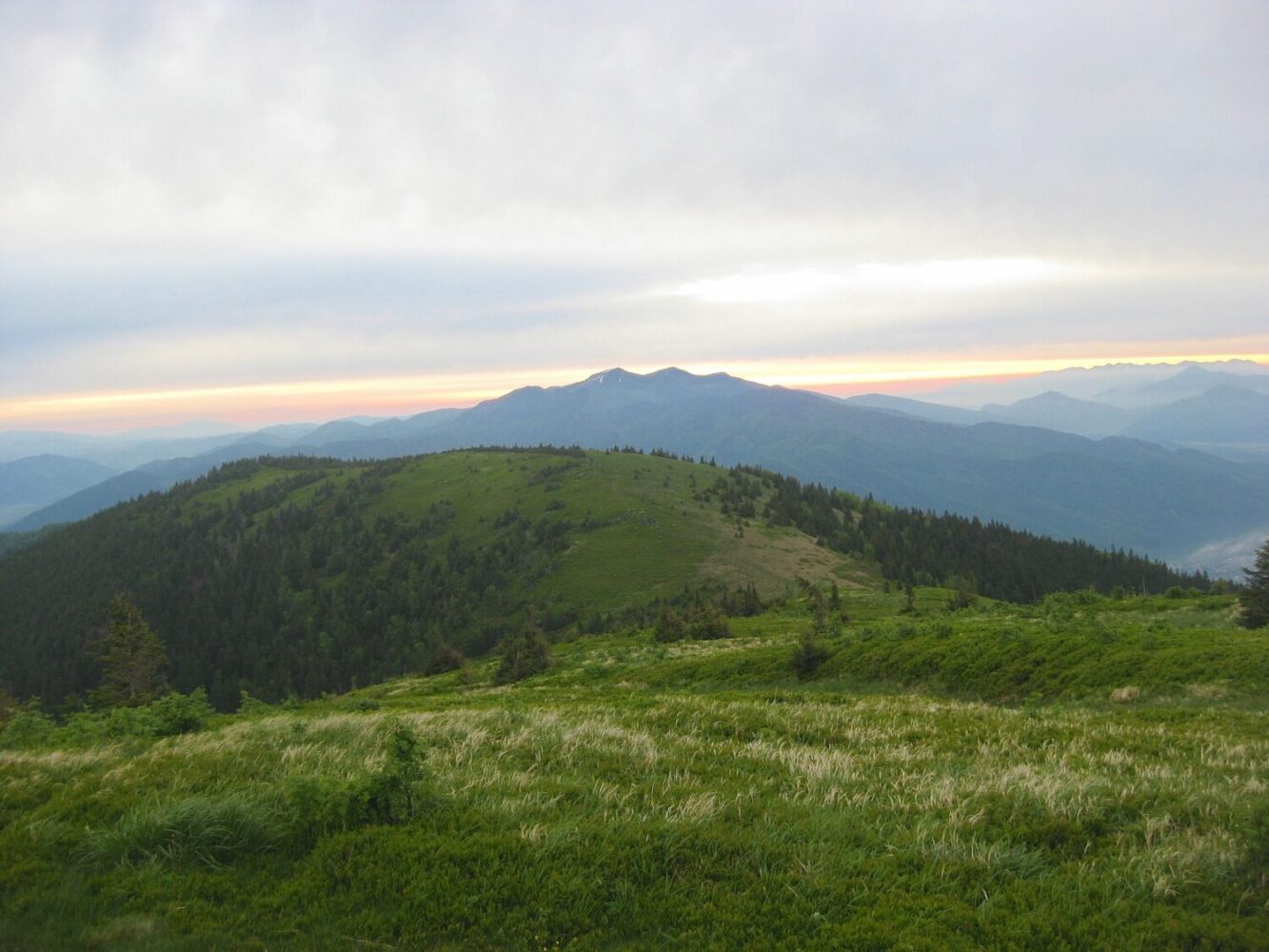
Bulging IKEA bags
We ride through many kilometres of lush woods and tumbledown houses. The villages are largely deserted, and once we go through a beautiful, secret valley which together with the humidity reminds me of the rolling country of Sabah in northern Borneo. Once again a railway line follows the road almost constantly, and as ever, I wonder what these houses are like inside. Stacks of cut timber are everywhere, as are the wandering dogs. A sign for Tescos 25km, then another at 3km. The entire country, town and village alike, seems to be largely deserted, and most of the people to be seen, traipsing along the roadsides in their lime green and brilliant orange sports kit with their bulging IKEA bags, have very dark skins.
Crumbling red bricks
There are blocks of communist flats in every town and sizable village, to house the people who work in the numberless adjacent factories, with their astonishingly high chimneys, all banded white and red. They surely can’t be a thousand feet high, some of these chimneys, but they certainly look like it. These faded and colourless factories, with their walls sprayed with liquid cement to keep up the crumbling red bricks, look not so much defunct as condemned. To a Westerner travelling on the same continent as, say, Switzerland and Germany, the squalor is startling to say the least, and as for the roads – those bikers I’ve spoken to so far have told me that the roads in Bulgaria and Romania are so bad I’ll need a GS not a road bike.
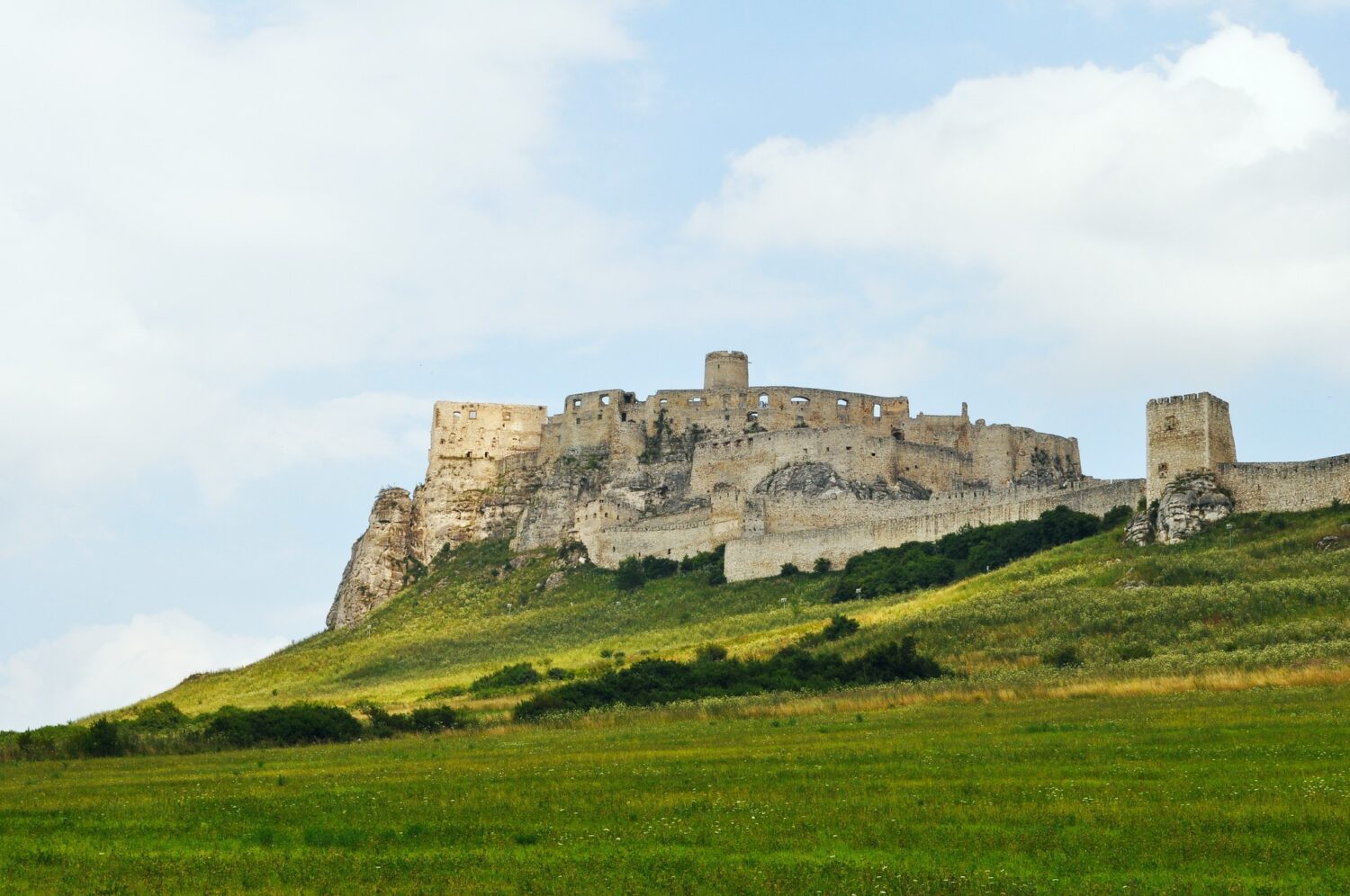
Wooded hills
Another surprise is the extent of the wooded hills, hour after hour. I constantly twist in the saddle to look all around to appreciate it, and once I can see, all the way to a very far distant horizon, the full 360 degrees. This not-very-main road is excellent, and every so often a castle appears on a distant hilltop.
For hours, this drizzling high cloud doesn’t let the sun through. And then suddenly – sunshine! The road begins to steam.
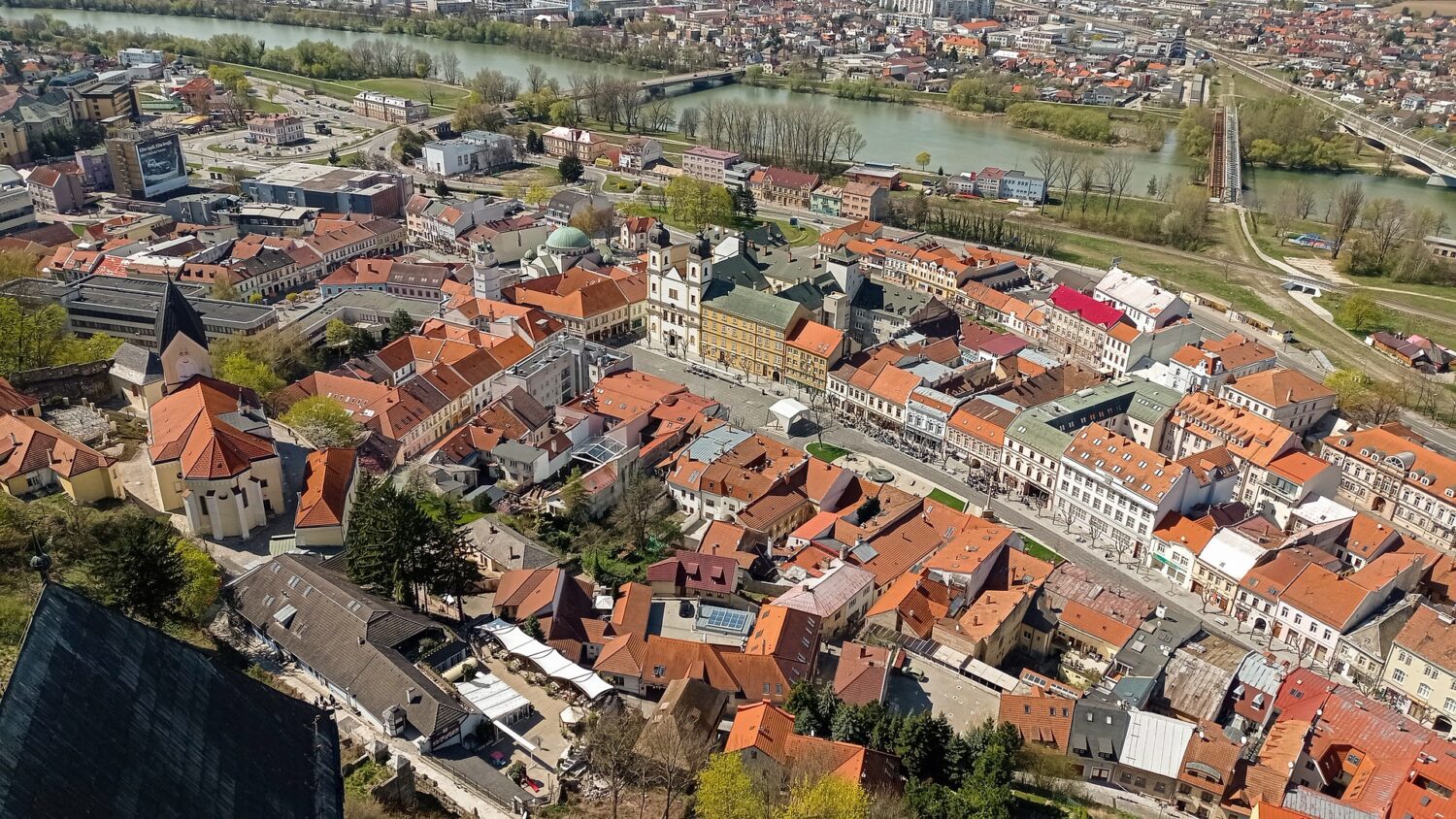
Trencin
Trencin, just before the Czech border. Although there are dozens of pensions and hotels, I follow signs for a campsite, which take me across the river and onto an island, and through a gaudy area of 1970s recreational facilities, with the concrete and the steel pool and the stadium all painted in faded colours. I check in at the campsite office/shop. There’s a motorcyclist in here, a short, pot-bellied man in his forties wearing a leather jacket with tassels up and down the sleeves and across the shoulders, above a skull and crossed bones and the legend Black Kings. He seems nervous, pointing here and there and glancing round at me. His shopping consists of packets of noodles, twenty Marlboro cigarettes, some cake, some jam, and now a small bottle of vodka, which he slips into a jacket pocket before shooting me a challenging look on his way out.
The campsite lady speaks only speak German, but we sort something out and I’m shown to my cabin, which is clean and small. The facilities are basic but sufficient, and speakers mounted on trees and huts everywhere broadcast constant Country and Western music.
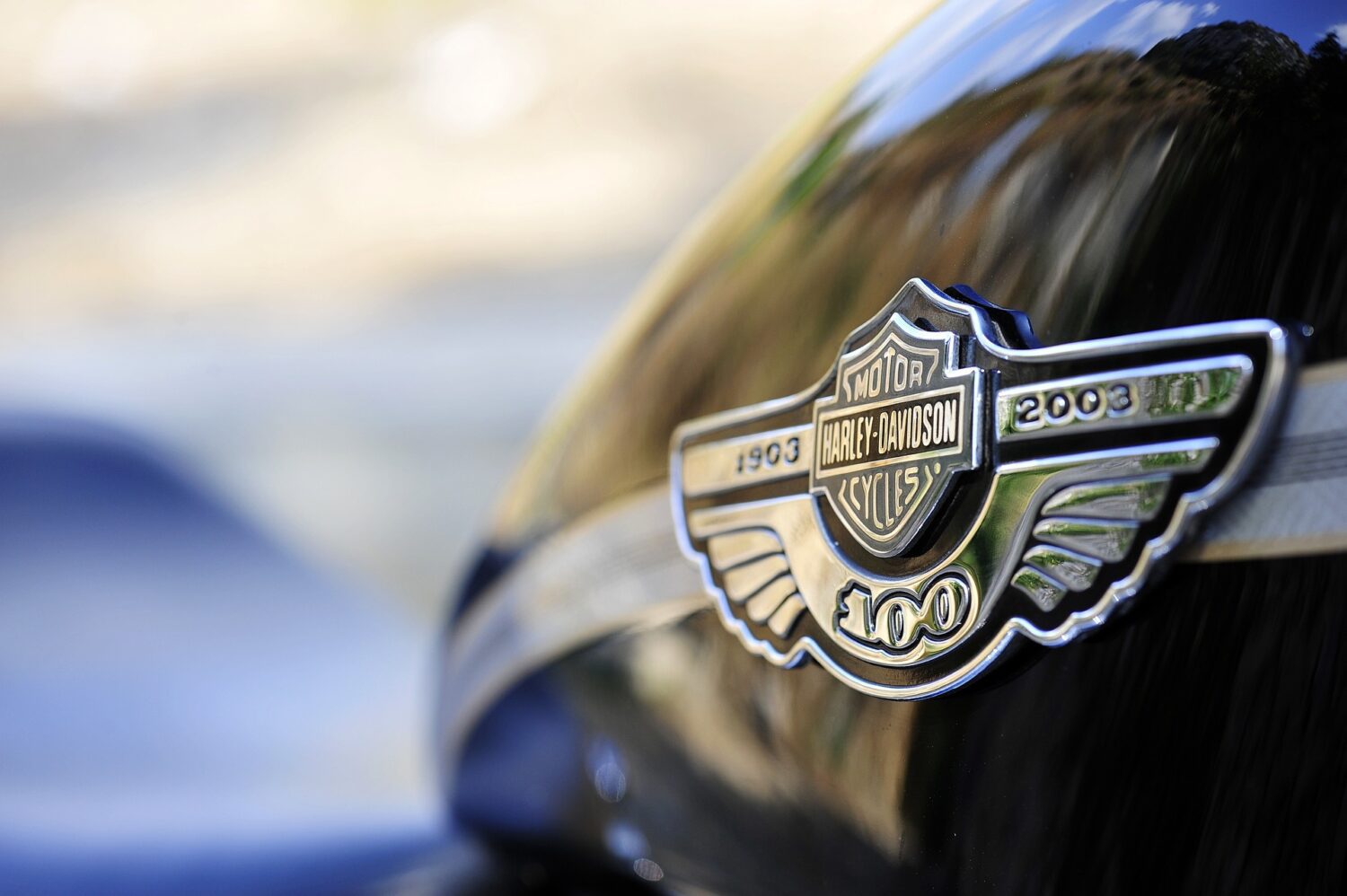
Black Kings
It’s still early, so I sit at the table on my little veranda and watch the bikers who are camped across the way, a band of bikers in black leather jackets with Black Kings logos, whose Japanese easy-rider style bikes, with high bars, backrests for the sisters and forward-mounted footpegs for the brothers, are parked in a neat line. One of them I recognise as a Sportster 883, the baby of Harley Davidson’s range; it is small, slow, heavy, under-powered, but it is a Harley. While the men stand around smoking and discussing the day’s ride and compare the performances of the Virago (550cc) and the CM250TB (250cc) and the Drag Star (650cc), the girls queue for the washrooms.
Uneasy Rider
After a while, tubby Uneasy Rider leaves them and trudges across the grass back to the shop, from where he soon re-emerges and returns to re-join the group, all the while completely ignoring me and the battered old BMW at my side. It doesn’t take many seconds to see that he’s the oldest over there, and when he and several of the others go to the bikes and stand around gazing admiringly at the 883, it becomes equally obvious that he is the Black Kings’ leader.
By evening, he has made another two quick trips to the campsite shop – still not even glancing at the motorcyclist sitting ten yards away, and when I look across and see that he has gathered his expectant flock around him in a circle by their camp fire, it’s not difficult to guess why the two extra trips.
Castle
To reduce the size of his audience by at least one, I walk into town for supper, relishing the sight of the old castle atop the hill. My route takes me between the trees and through the 1970s recreational facilities of the playground, which is constructed almost entirely of steel and concrete, all of which is rusty and painted. Even the attractions in the children’s section are all steel and concrete, from climbing frames to ping pong tables.
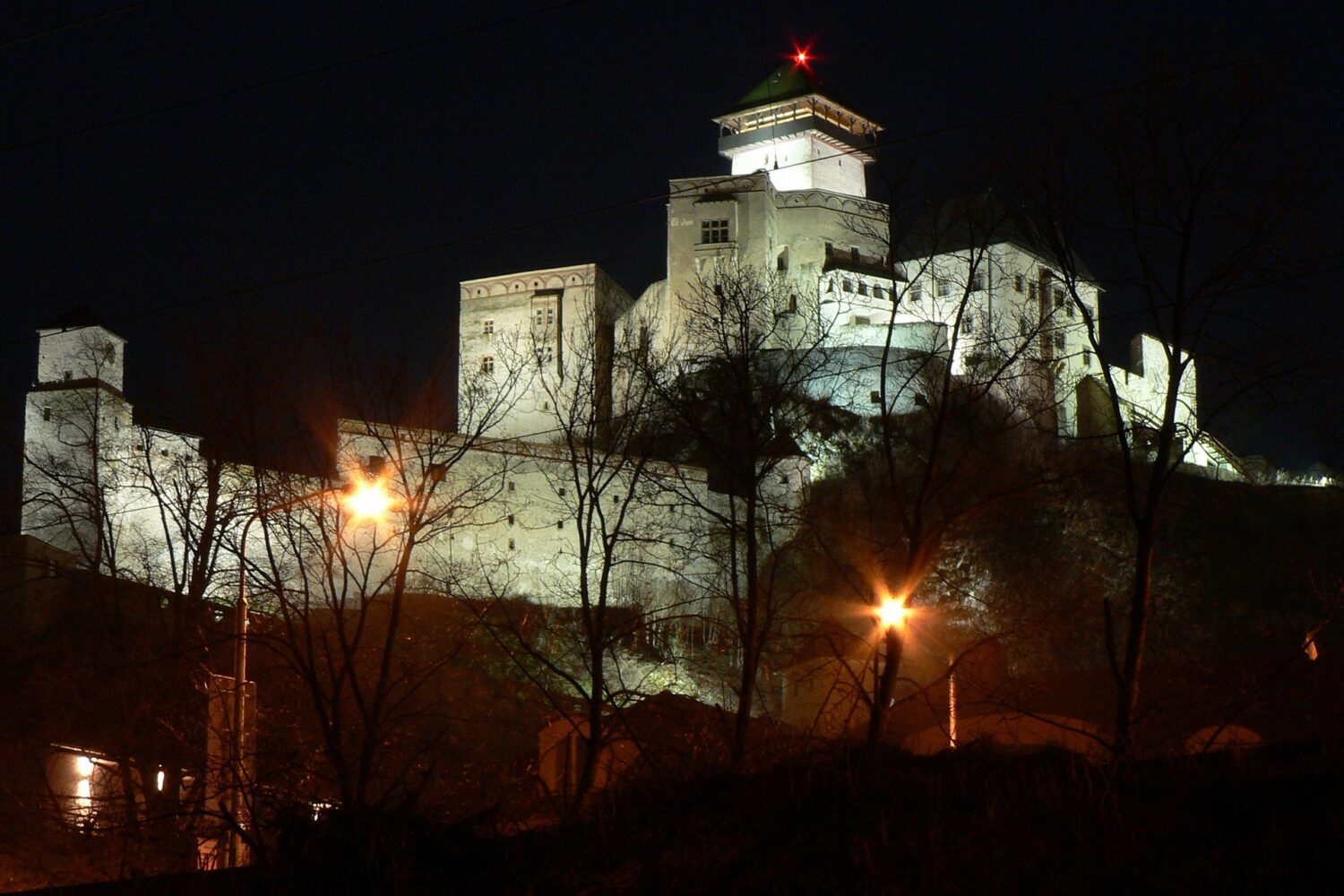
Trencin is an attractive university town of 18th and 19th Century buildings and artful modern pedestrian plazas, and when I settle into a cosy restaurant, all shadowy nooks and creaking floorboards, and order supper, I realise I’ve left the guidebook on the table in my cabin, leaving me with nothing to do for an hour but resolutely refuse to watch the pretty and perfectly-formed young barmaid, whose naked body appears to have had a T-shirt and jeans painted onto it, go about her duties.
Uneasy Rider looks pleased this morning, with his saggy belly and thinning hair, when I see him striding across the grass to the shop. He looks older, though, and must have forgotten to buy porridge during his many shopping trips last night. The campsite is otherwise deserted, and I sit in the sun, smoking and writing, for an hour until Mrs Campsite is ready to return my passport.
Czech Republic
At the border, a grim Slovak guard takes my passport into his office, returns after I’ve watched him through the window making various phone calls, points at the back of the bike, barks, “Baggage!”, and points to where he wants me to park. The tank bag, top box and two panniers unlocked and waiting in a row on the pavement for him, I sit on the kerb, smoking and chewing four-day old bread, and watch a hawk hovering high above the neighbouring field. A shiny new Slovakian Mercedes 500SEL is turned back (oddly, since it contained what appeared to be an entire family), then one of the guards comes out with my passport and gestured up the road, towards the wooded hills of the Czech Republic.
But I ignore him, because I’m kicking myself for not bothering to read the guidebook before leaving the campsite.
The site of Trenčín has been occupied since before Roman times, and the town itself was occupied by the Germans and became the regional headquarters of the Sicherheitsdienst and the Gestapo, but it is the castle that’s really worth seeing . . . a typical medieval fortification situated high on a rock above the city . . . first noted in 1069 when the region was controlled by King Boleslaw I the Brave of Poland . . . as one of the few stone castles in Slovakia it resisted the disastrous invasion of Mongols in 1241 . . . climb the stairs for superb views over the surrounding area . . . towers and palaces . . . However, Trenčín is best known for a Roman inscription carved into a cliff below the castle dating from 179 AD, a soldier’s graffiti celebrating a battle against German tribes: To the victory of the Emperor and the army which, numbering 855 soldiers, resided at Laugaricio, by order of Maximianus, legate of the 2nd auxilliary legion.
Motorcycle Rental
